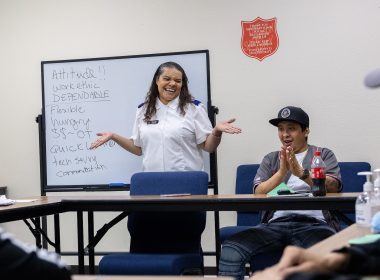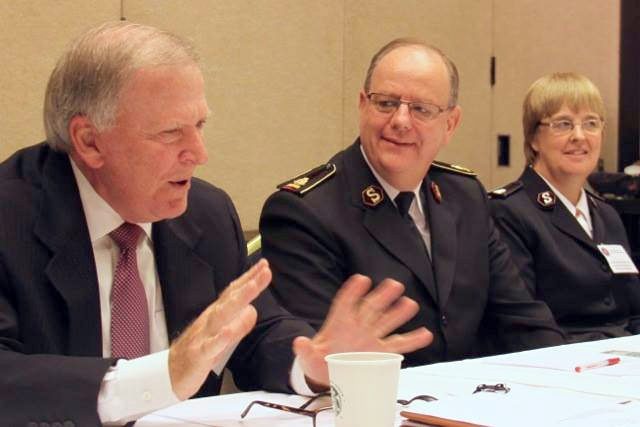Don’t be downhearted, cheer up, cheer up
by Bob Docter –
Many seem to have forgotten the next line of that little Sunday school chorus. Remember it?
Many haven’t sung it in decades. Have you?
Even more have never heard it. How about you? Do you know the next line?
I think that our brains get very active when we humans face some kind of difficult situation in our lives—when things aren’t going very well—when we’ve experienced some kind of loss or anticipate the possibility of some kind of loss. We immediately and unconsciously send a direct message to our emotions that says be afraid in bold type. We experience the fear and dread and interpret it back in our brains as shouting:
“The sky is falling—the sky is falling!”
“The world as I know it is finished—what holds it together is gone—we’re all shooting off into space!”
“The economy is falling apart—it’s not working!”
“We face such an enormous debt, we’ll never get free.”
“Our children will suffer throughout their entire lives.”
Then the brain sends off another message: stay afraid—permanently. This triggers random, running, ruminations focused around the theme: what’ll I do? And we don’t have an answer.
It seems as if it doesn’t take much to scare us all to death. We cringe and quake, withdraw and isolate, run and hide. We stay in bed and cover our heads with pillows. We are gripped with what we believe is fear—lightening sharp, blazing hot, and crushingly cold. It jumps inside us and immobilizes us. We don’t even know where to run. It’s not fear. It’s something else—some kind of irrational anxiety.
Anxiety is fear without an object. When you’re anxious you’re frightened all the time—some kind of a pervasive, constant dread of something you have yet to identify. You get so tired of it you find peace in depression (no feeling at all), and the doorway out of depression is labeled “anger” because at least you feel something.
These days of “information overload” (Toffler, 30 years ago in Future Shock) provide us with plenty of opportunities for fear, anxiety, dread, depression, and anger. Change happens so fast these days that it scares us. We are overwhelmed and fear failure. We don’t like that feeling so we cover it up with anger. Anger takes energy. It’s tiring, and we don’t like it so we find someone or something to blame—the farther away the better. Soon, we fasten our blame on the boss, the mother-in-law, and probably finally get around to the government. I can kick them around all I want.
The news cycle on electronic media is 24 hours long. It takes a lot of garbage to fill and often is so bad we don’t even read it or watch it. If by some combination of boredom and self-contempt we choose the latter, we sit transfixed, staring at the tube, swallowing mostly propaganda spouted from “talking points” from a PR firm hired to do everything possible to confuse us.
And another thing—our trust level goes down the drain. Even at work, we begin to see our colleagues with more suspicion. We think about the guy three desks over who just got laid off (could I be next)? We remember the latest blurb from the company showing how it’s affected by the economy (the arrows pointed down a little). We criticize our latest major purchases and try to figure out our income (what is unemployment compensation these days?)
We see the government in action with all its committees and rules and filibusters and logjams—all its yelling and lack of civility. Then we listen to what seems to be encouragement to give up on democracy—to abandon government altogether. The only form of government that follows a failure of democracy has been totalitarianism.
Winston Churchill once said that democracy was the worst form of government available to man—and then he paused in Churchillian manner and said—except all the others.
To be sure, these are difficult days. Our interpersonal style communicates much less joy. Our anger erupts a little more quickly. Our tone is sharper. We try and fix things ourselves, and we can’t. We don’t need to. This is a faith problem. We’ve forgotten what to do with our burdens.
Have you thought of the last line of that little chorus, yet—the one that encourages us to avoid the “dumps”—to abandon our “blue” period—to cheer up? I’ll give you lyrics.
Don’t be downhearted, cheer up, cheer up,
For Jesus is on his throne,
And he will supply, your needs from on high,
Cheer up—cheer up—cheer up!









